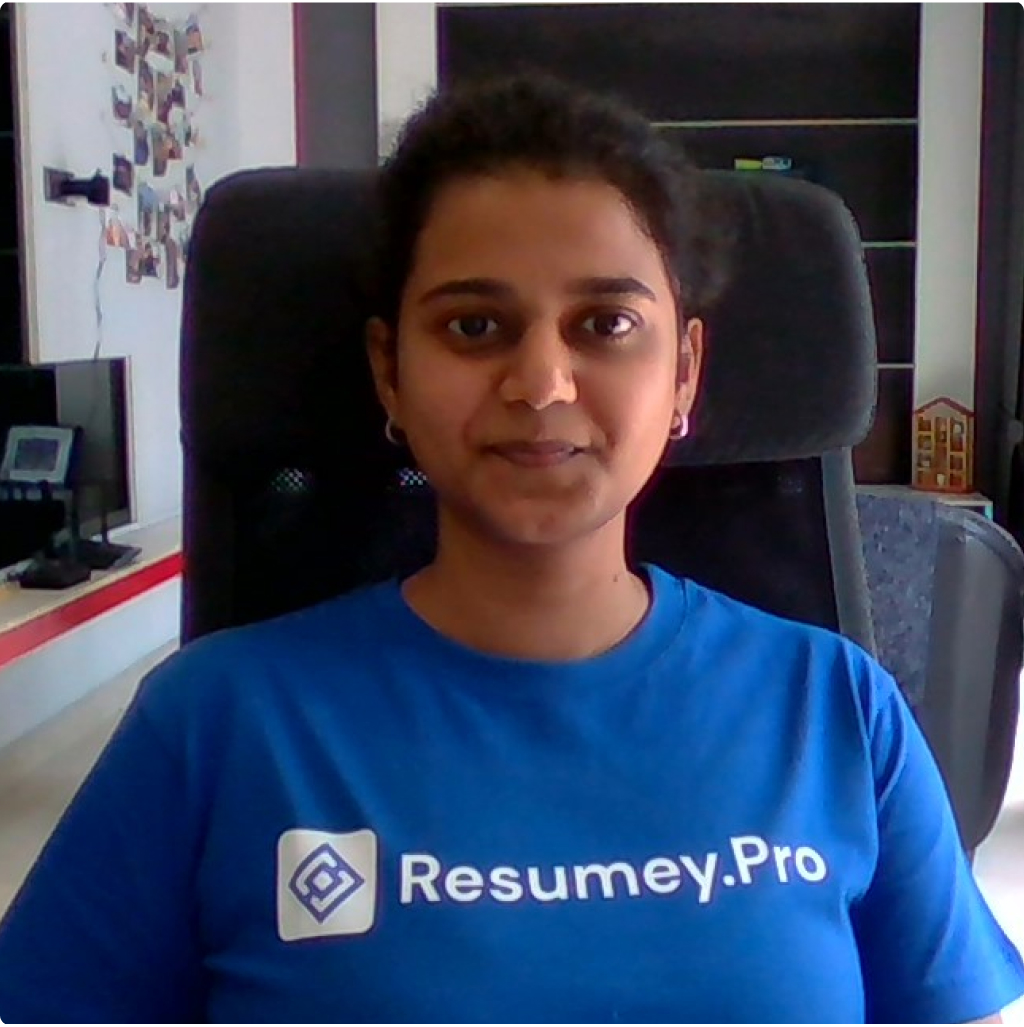Resume Rescue Series #8
In the fiercely competitive tech job market, a one-size-fits-all approach to your resume won't suffice. Each job application is like a unique puzzle, and your resume needs to fit perfectly. So, customize it. Tailor your resume for each job by highlighting the skills and experiences that match the job description.
Tailoring your resume to specific tech roles is a crucial step in catching the eye of employers and demonstrating that you're the perfect fit for their team.
Here's how you can customize your resume effectively for different tech positions:
Customizing Your Resume for Different Tech Job Types
Customizing your resume for different tech job types is super important. It is how you catch the eye of employers and show them you are the ideal match for their team. So, let's dive into how you can do it effectively.
Software Development Roles:

-
Front-end Developer:
- Highlight proficiency in front-end technologies like HTML, CSS, JavaScript, and relevant libraries and frameworks (e.g., React, Angular).
- Showcase your experience with user interface (UI) design and responsive web development.
- Mention any collaboration with UX/UI designers and your ability to turn designs into functional, user-friendly web applications.
-
Back-end Developer:
- Emphasize your expertise in server-side technologies such as Python, Java, Ruby, or Node.js.
- Detail your experience with database management systems (e.g., MySQL, MongoDB) and API development.
- Highlight your contributions to optimizing server performance, scalability, and security.
-
Full-stack Developer:
- Showcase your proficiency in both front-end and back-end technologies.
- Describe your ability to work on end-to-end development, from database design to user interface implementation.
- Highlight any experience with cross-functional collaboration in agile or iterative development environments.
-
Mobile App Developer:
- Highlight your proficiency in mobile app development platforms (e.g., Android Studio, Xcode).
- Showcase your experience with iOS (Swift) or Android (Java/Kotlin) app development.
- Mention any published apps or contributions to app stores.
-
DevOps Engineer:
- Emphasize your knowledge of continuous integration/continuous deployment (CI/CD) pipelines.
- Detail your experience with infrastructure as code (IaC) tools like Terraform or Ansible.
- Highlight your ability to automate deployment processes and enhance system reliability.
-
Game Developer:
- Showcase your expertise in game engines (e.g., Unity, Unreal Engine) and programming languages (C++, C#).
- Describe your experience in 2D/3D game development and optimization.
- Mention any game titles you've contributed to and your role in their development.
Data Analysis and Data Science Roles:

-
Data Analyst:
- Highlight your skills in data cleaning, data visualization (using tools like Tableau or Power BI), and statistical analysis.
- Showcase your ability to derive actionable insights from data to support decision-making.
- Mention any experience with A/B testing, data mining, and data-driven storytelling.
-
Machine Learning Engineer:
- Emphasize your expertise in machine learning frameworks (e.g., TensorFlow, PyTorch) and programming languages (Python, R).
- Detail your involvement in model development, training, and deployment.
- Highlight any experience with deep learning, natural language processing (NLP), or computer vision projects.
-
Data Scientist:
- Showcase your proficiency in statistical modeling and predictive analytics.
- Highlight your ability to develop data-driven solutions for complex business problems.
- Mention any experience with big data technologies (e.g., Hadoop, Spark) and distributed computing.
-
Business Intelligence (BI) Analyst:
- Highlight your proficiency in BI tools like Tableau, Power BI, or QlikView.
- Showcase your ability to create interactive dashboards and reports for data-driven decision-making.
- Mention any experience with data warehousing and ETL processes.
-
Data Engineer:
- Emphasize your skills in data pipeline development and data integration using tools like Apache Spark or Apache Kafka.
- Detail your experience with big data platforms like Hadoop or cloud-based data storage solutions.
- Highlight your role in building scalable data architectures.
-
Quantitative Analyst (Quant):
- Showcase your expertise in financial modeling, risk analysis, and algorithm development.
- Emphasize your programming skills in languages like R, Python, or MATLAB.
- Mention any experience with trading strategies or portfolio optimization.
IT Support and Networking Roles:

-
IT Support Specialist:
- List your certifications, such as CompTIA A+, Network+, or Microsoft Certified IT Professional (MCITP).
- Detail your skills in troubleshooting hardware and software issues.
- Highlight your knowledge of operating systems (Windows, macOS, Linux) and remote support tools.
-
Network Engineer:
- Emphasize your expertise in network protocols (TCP/IP, DNS, DHCP) and network design.
- Describe your experience with router and switch configurations.
- Highlight your ability to manage and secure network infrastructures.
-
Systems Administrator:
- Showcase your proficiency in server administration (Windows Server, Linux).
- Detail your experience with virtualization technologies (VMware, Hyper-V) and cloud platforms (AWS, Azure).
- Mention your skills in system monitoring, backups, and disaster recovery planning.
-
Network Security Engineer:
- List your security certifications (e.g., Certified Information Systems Security Professional - CISSP).
- Emphasize your skills in firewall configuration, intrusion detection, and security policy management.
- Highlight your ability to assess and mitigate network vulnerabilities.
-
Cloud Solutions Architect:
- Showcase your expertise in cloud platforms like AWS, Azure, or Google Cloud.
- Detail your experience in designing and implementing scalable cloud architectures.
- Mention any certifications related to cloud services.
-
Help Desk Technician:
- Highlight your customer service and problem-solving skills.
- Emphasize your experience with remote support tools and ticketing systems.
- Mention your ability to troubleshoot hardware and software issues.
Cybersecurity Roles:

-
Security Analyst:
- List your security certifications, such as Certified Information Systems Security Professional (CISSP) or Certified Ethical Hacker (CEH).
- Emphasize your skills in threat detection and incident response.
- Highlight your experience with security information and event management (SIEM) tools.
-
Penetration Tester:
- Detail your experience in ethical hacking, vulnerability assessment, and penetration testing methodologies.
- Showcase your proficiency with security testing tools (e.g., Metasploit, Burp Suite).
- Mention your ability to provide actionable recommendations for improving security posture.
-
Security Consultant:
- Emphasize your expertise in cybersecurity frameworks (e.g., NIST, ISO 27001) and risk assessment.
- Highlight your experience in advising organizations on security best practices and compliance.
- Mention any experience with security audits and policy development.
-
Incident Responder:
- Emphasize your experience in responding to security incidents and managing incident recovery.
- Showcase your proficiency in forensic analysis and threat hunting.
- Highlight your skills in documenting incident reports and post-incident reviews.
-
Security Architect:
- List your security architecture certifications (e.g., Certified Information Systems Security Professional - CISSP).
- Detail your experience in designing and implementing security frameworks and policies.
- Mention your ability to conduct security assessments and recommend improvements.
-
Security Operations Center (SOC) Analyst:
- Highlight your skills in monitoring security alerts and incidents.
- Emphasize your knowledge of SIEM tools and security information analysis.
- Mention your role in real-time incident detection and response.
Using Keywords from Job Postings
When you are aiming for a particular tech job, you need to do some detective work. Check out those job listings that match your target role. See what kind of words and phrases they are using. These are the magic keywords you want to include in your resume. These are the keywords and phrases that recruiters and ATS systems are likely to be looking for. Now, don't just stuff them randomly. Incorporate these keywords naturally into your resume, particularly in the skills, professional summary, and experience sections. This ensures that your resume aligns with the job requirements and increases the likelihood of passing initial screenings.
Demonstrating Alignment with the Company's Tech Stack and Culture
Do your homework.
First off, check out what kind of software and tools they're into - that's their tech stack. If you've got experience or skills related to their tech stack, make sure to highlight them in your resume. But it's not just about the tech stuff. Think about their vibe, their work culture. Show in your professional summary and cover letter that you're not just tech-savvy but also a good fit for their values and work environment.
Why go through all this trouble? Well, it's like speaking their language and showing that you're ready to be part of their tech tribe. Tailoring your resume for tech roles not only makes you a more appealing candidate but also shows potential employers that you've taken the time to understand their needs and can seamlessly integrate into their tech team.
When you personalize your approach like this, you boost your chances of getting those interviews and securing your dream tech job. But remember to proofread your resume before you submit. While personalizing, some irrelevant phrases may slip through the fingers. Ensure your resume is relevant and error-free.
By following these strategies, you'll craft a resume that not only impresses but also convinces potential employers of your value in the tech industry.
